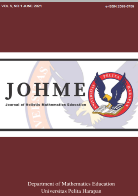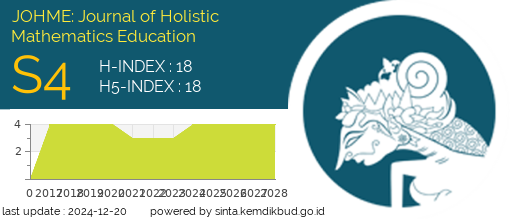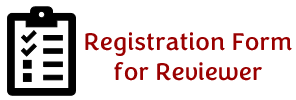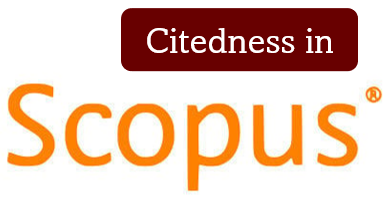PERANAN REFLEKSI GURU DALAM UPAYA MENINGKATKAN MANAJEMEN KELAS [THE ROLE OF TEACHER’S REFLECTION IN EFFORTS TO IMPROVE CLASS MANAGEMENT]
DOI:
https://doi.org/10.19166/johme.v5i1.2124Λέξεις-κλειδιά:
reflection, reflective learning, teachers competence, class management, refleksi, pembelajaran reflektif, kompetensi guru, manajemen kelasΠερίληψη
Reflective learning is one of the actions in which the teacher observes the shortcomings that occur in the classroom. Reflective learning aims to find solutions to every problem that arises when the teacher teaches, so that class management runs well. This reflection process consists of 4 stages: concrete experience, reflective observation, abstract conceptualization, and active experimentation. The focus of the study in this paper is on Christian education, Christian teachers, students, reflective learning, and classroom management. The method used is analysis based on literature study. Reflective learning practices that rely on the Holy Spirit in the progressive sanctification process to become like God in responding to each student's behavior according to the principles of the Christian faith. Reflective learning is important to be applied in the classroom, because through reflective learning the teacher will be more sensitive to problems in the classroom. Based on the results of this study, it can be said that the difficulties experienced by the author during the reflection process; first, student teachers do not see the importance of assertiveness in leading the class. Second, do not give a firm attitude during the learning process. Third, student teachers are not consistent in carrying out discipline in the classroom. It is recommended that in the implementation of reflective learning, teachers need to have sufficient experience and competence, and need to carry out a complete reflective learning cycle to complete the completion of overcoming the class.
BAHASA INDONESIA ABSTRACT: Pembelajaran reflektif adalah salah satu tindakan dimana guru melakukann observasi, terhadap kekurangan yang terjadi dalam kelas. Pembelajaran reflektif bertujuan untuk menemukan solusi untuk setiap permasalahan yang muncul saat guru mengajar, sehingga manajemen kelas berjalan dengan baik. Proses refleksi ini terdiri dari 4 tahap: concrete experience, reflective observation, abstract conceptualization, dan active experiment. Fokus kajian dalam paper ini mengenai pendidikan Kristen, guru Kristen, siswa, pembelajaran reflektif, dan manajemen kelas. Metode yang digunakan adalah analisis berdasarkan studi literature. Praktik pembelajaran reflektif yang mengandalkan Roh Kudus dalam proses progressive sanctification untuk menjadi semakin serupa dengan Allah dalam merespons setiap perilaku siswa sesuai prinsip iman Kriten. Pembelajaran reflektif penting untuk diterapkan dalam kelas, karena melalui pembelajaran reflektif guru akan semakin peka dengan permasalahan dalam kelas. Berdasakan hasil dari penelitian ini dapat disimpulkan bahwa kesulitan yang dialami penulis selama proses refleksi; pertama, mahasiswa guru tidak memandang penting sikap tegas dalam memimpin kelas. Kedua, tidak memberikan sikap tegas selama proses belajar. Ketiga, mahasiswa guru tidak konsisten adalam menjalankan sikap disiplin dalam kelas. Disarankan dalam pelaksanaan pembelarajan reflektif guru perlu memiliki pengalaman dan kompetensi yang cukup, serta perlu melakukan siklus pembelajaran reflektif secara utuh untuk memberikan penyelesaian dalam mengatasi kelas.
Αναφορές
Akella, D. (2010). Learning together: Kolb's experiential theory and its application. Journal of Management & Organization, 16(1), 100-112. https://doi.org/10.1017/S1833367200002297
Amin, M. (2017). Peran guru menanamkan nilai kejujuran pada lembaga pendidikan. Jurnal Studi Manajemen Pendidikan, 1(1), 105-124. https://doi.org/10.29240/jsmp.v1i1.222
Baroroh, K. (2006). Pendidikan formal di lingkungan pesantren sebagai upaya meningkatkan kualitas sumber daya manusia. Jurnal Ekonomi dan Pendidikan, 3(1), 42-52. https://doi.org/10.21831/jep.v3i1.634
Baskoro, D. G. (2013). Penulisan tugas akhir. Information Literacy, 1.
Bavinck, H. (2011). Reformed dogmatics. Grand Rapids, MI: Baker Academic.
Berkhof, L. (2012). Sistematika teologi: Doktrin keselamatan. Surabaya, Indonesia: Momentum.
Berkhof, L. (2016). Teologi sistematika: Doktrin Kristus. Surabaya, Indonesia: Momentum.
Brookfield, S. D. (2013). Becoming a critically reflective teacher. San Fransisco, USA: Josey-Bass.
Budiningsih, C. (2011). Karakteristik siswa sebagai pijakan dalam penelitian dan metode pembelajaran. Jurnal Cakrawala Pendidikan, 30(1), 160-173. https://doi.org/10.21831/cp.v1i1.4198
Chrismastianto, I. A. W. (2018). Peran dan karya Roh Kudus serta implikasi terhadap pengembangan pribadi dan kualitas pengajaran guru Kristen. Polyglot: Jurnal Ilmiah, 14(1), 19-30. https://doi.org/10.19166/pji.v14i1.326
Farrell, T. S. (2013). Reflective teaching. Virginia: TESOL International Association.
Gangel, K. (2001). Membina pemimpin pendidikan Kristen. Malang, Indonesia: Gandum Mas.
Hariyanto, A. (2015). Efektivitas model problem based learning berbantuan mind map terhadap kemampuan pemecahan masalah fisika. Jurnal Pendidikan dan Kebudayaan, 21(3), 221-241. https://doi.org/10.24832%2Fjpnk.v21i3.188
Hasan, B. (2017). Karakteristik respons siswa dalam menyelesaikan soal geometri berdasarkan taksonomi solo. Jurnal Inovasi Pembelajaran, 3(1), 449-559. https://doi.org/10.22219/jinop.v3i1.4282
Hidayat, D., & Nadaek, E. H. (2017). Karakteristik pendidikan yang menebus di suatu sekolah Kristen. Polyglot: Jurnal Ilmiah, 13(2), 87-97. https://doi.org/10.19166/pji.v13i2.439
Hoekema, A. A. (2013). Diselamatkan oleh anugerah. Surabaya, Indonesia: Momentum.
Imran, S., Hidayat, D., & Winardi, Y. (2019). Peran guru Kristen dalam pembelejaran matematika di suatu sekolah Kristen di Tangerang. JOHME: Journal of Holistic Mathematics Education, 2(2), 71-82. https://doi.org/10.19166/johme.v2i2.1683
Indriyanto, B. (2012). Pengembangan kurikulum sebagai intervensi kebijakan peningkatan mutu pendidikan. Jurnal Pendidikan dan Kebudayaan, 18(4), 440-453. https://doi.org/10.24832/jpnk.v18i4.100
Issler, K. D. (2009). Inner core belief formation, spiritual practice, and willing-doing gap. Journal of Spiritual Formation and Soul Care, 2(2), 179-198. https://doi.org/10.1177/193979090900200203
Kadarmanto, M. (2017). Mengkaji revolusi mental dalam perspektif pendidikan Kristen. Polyglot: Jurnal Ilmiah, 12(1), 103-118. https://doi.org/10.19166/pji.v12i1.388
Knight, G. R. (2009). Filsafat & pendidikan: Sebuah pendahuluan dari perspektif Kristen. Jakarta, Indonesia: Universitas Pelita Harapan Press.
Marzano, R. J., Boorgren, T., Helflebower, T., Kanold-Mcintyre, J., & Pickering, D. (2012). Becoming a reflective teacher. Bloomington, Ind: Marzano Research Laboratory.
McNeil, J. (1990). Curriculum a comprehensive introduction. London, UK: Brown Higher Education.
Minatajaya, Y. (2013). Template tugas akhir. Karawaci, Indonesia: Universitas Pelita Harapan Press.
Panjaitan, B. (2015). Karakteristik metakognisi siswa dalam memecahkan masalah matematika berdasarkan tipe kepribadian. Jurnal Ilmu Pendidikan, 21(1), 19-28. https://doi.org/10.17977/jip.v21i1.6479
Pollard, A., Collins, J., Maddock, M., Simco, N., Swaffield, S., Warin, J., & Warwick, P. (2005). Reflective teaching. New York, NY: Continuum.
Pramudya, W. (2001). Mengenal filsafat pendidikan Paulo Freire: Antara banking concept of education, problem posing method, and pendidikan Kristen di Indonesia. Jurnal Teologi dan Pelayanan, 2(2), 259-270. Retrieved from https://ojs.seabs.ac.id/index.php/Veritas/article/view/63
Reed, A. J., & Bergemann, V. E. (2005). A guide observation, participation, and reflection in the classroom. New York, NY: McGraw-Hill.
Reeve, J. M., Warren, C. S., Duchac, J. E., Wahyuni, E. T., Soepriyanto, G., Jusuf, A. A., & Djakman, C. D. (2009). Pengantar akuntansi-adaptasi Indonesia. Jakarta, Indonesia: Salemba Empat.
Rupa, C. S. (2016). Ciri khas seorang gembala berdasarkan perspektif 1 Petrus 5:1-4. Jurnal Jaffray, 14(2), 165-188. https://doi.org/10.25278/jj71.v14i2.198
Rusyide, S. (2011). Prinsip-prinsip manajemen kelas. Yogyakarta, Indonesia: Diva Press.
Santoso, B., Yuniarsih, T., Adman, & Sarino, A. (2017). Pengaruh manajemen kelas terhadap motivasi belajar mahasiswa program studi pendidikan mananjemen perkantoran. Jurnal Manajerial, 16(2), 1-13. https://doi.org/10.17509/manajerial.v16i2.12819
Santoso, M. P. (2005). Karakteristik pendidikan Kristen. Veritas: Jurnal Teologi dan Pelayanan, 6(2), 291-306. Retrieved from http://repository.seabs.ac.id/handle/123456789/121
Saragih, M. J. (2018). Pelatihan guru matematika SD pada program teachers transformation center. Prosiding PKM-CSR, 1, 1263-1271. Retrieved from https://prosiding-pkmcsr.org/index.php/pkmcsr/article/view/115
Sarjana, S., & Khayati, N. (2017). Pengaruh etika, perilaku, dan kepribadian terhadap integritas guru. Jurnal Pendidikan dan Kebudayaan, 1(3), 379-393. https://doi.org/10.24832/jpnk.v1i3.450
Simanjuntak, J. M. (2018). Belajar sebagai identitas dan tugas gereja. Jurnal Jaffray, 16(1), 1-24. https://doi.org/10.25278/jjLv6iL279
Siswanto, H. W. (2011). Studi efektivitas pembelajaran terpadu ilmu pengetahuan sosial di sekolah menengah pertama. Jurnal Pendidikan dan Kebudayaan, 17(2), 153-165. https://doi.org/10.24832%2Fjpnk.v17i2.14
Tanyid, M. (2014). Etika dalam pendidikan: Kajian etis tentang krisis moral berdampak pada pendidikan. Jurnal Jaffray, 12(2), 235-250. https://doi.org/10.25278/JJ.v12i2.013.235-250
Tow, T., & Khoo, J. (2007). Theology for every Christian: A systematic theology in the reformed and premillennial tradition of J Oliver Buswell. Singapore: Far Eastern Bible College Press.
Wijaya, H. (2016). Pengenalan manusia baru di dalam Kristus: Natur, proses, dan fakta serta implikasi teologis dan praktisnya. Jurnal Jaffray, 14(1), 109-130. https://doi.org/10.25278/JJ.v14i1.194.109-130
Zuber-Sekirrit, O. (1992). Professional devvelopment in higher education: A theoritical framework for action research.London, UK: Kogan Page.Λήψεις
Δημοσιευμένα
Πώς να δημιουργήσετε Αναφορές
Τεύχος
Ενότητα
Άδεια
Authors who publish with this journal agree to the following terms:
1) Authors retain copyright and grant the journal right of first publication with the work simultaneously licensed under a Creative Commons Attribution License (CC-BY-SA 4.0) that allows others to share the work with an acknowledgement of the work's authorship and initial publication in this journal.
2) Authors are able to enter into separate, additional contractual arrangements for the non-exclusive distribution of the journal's published version of the work (e.g., post it to an institutional repository or publish it in a book), with an acknowledgement of its initial publication in this journal.
3) Authors are permitted and encouraged to post their work online (e.g., in institutional repositories or on their website). The final published PDF should be used and bibliographic details that credit the publication in this journal should be included.”










